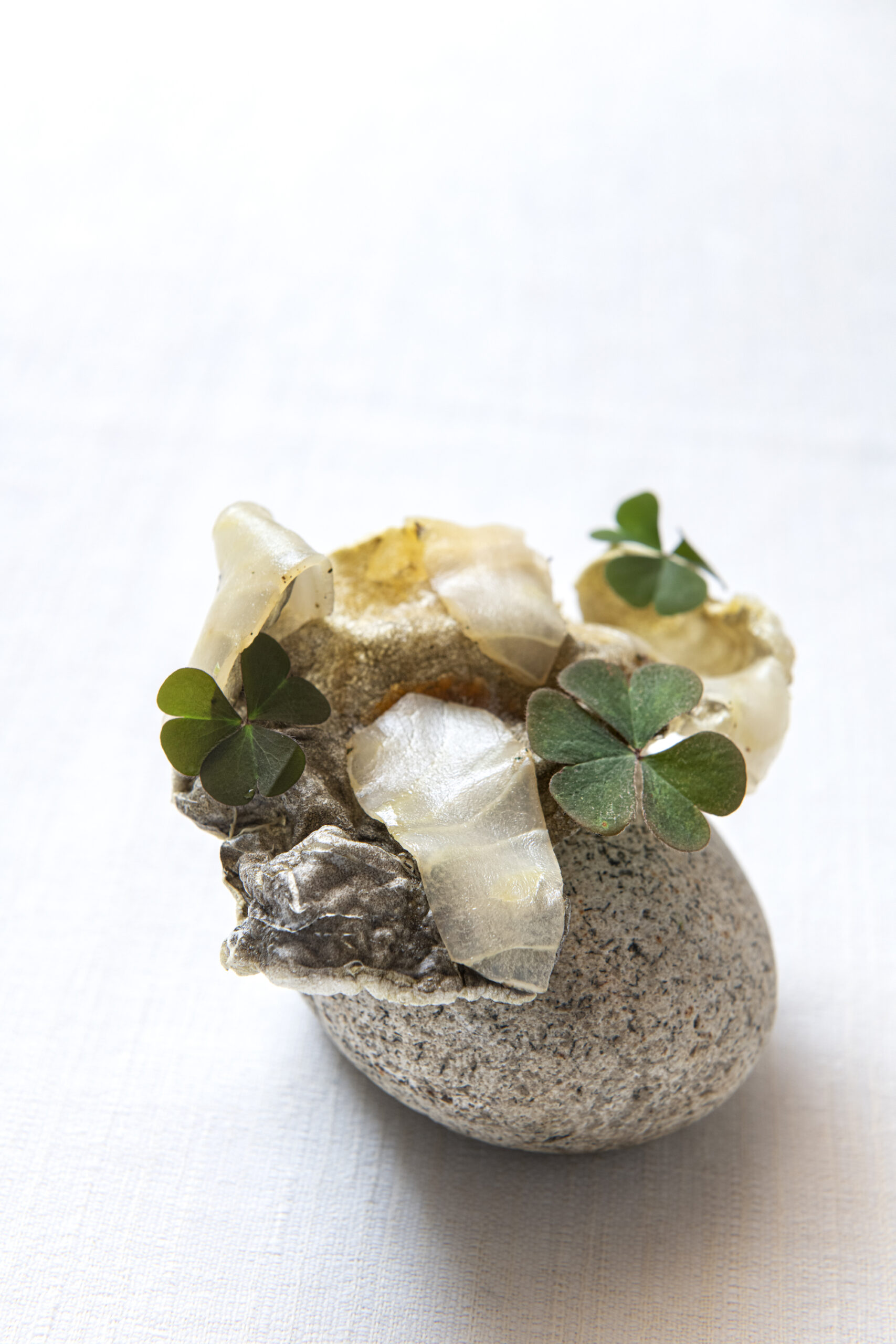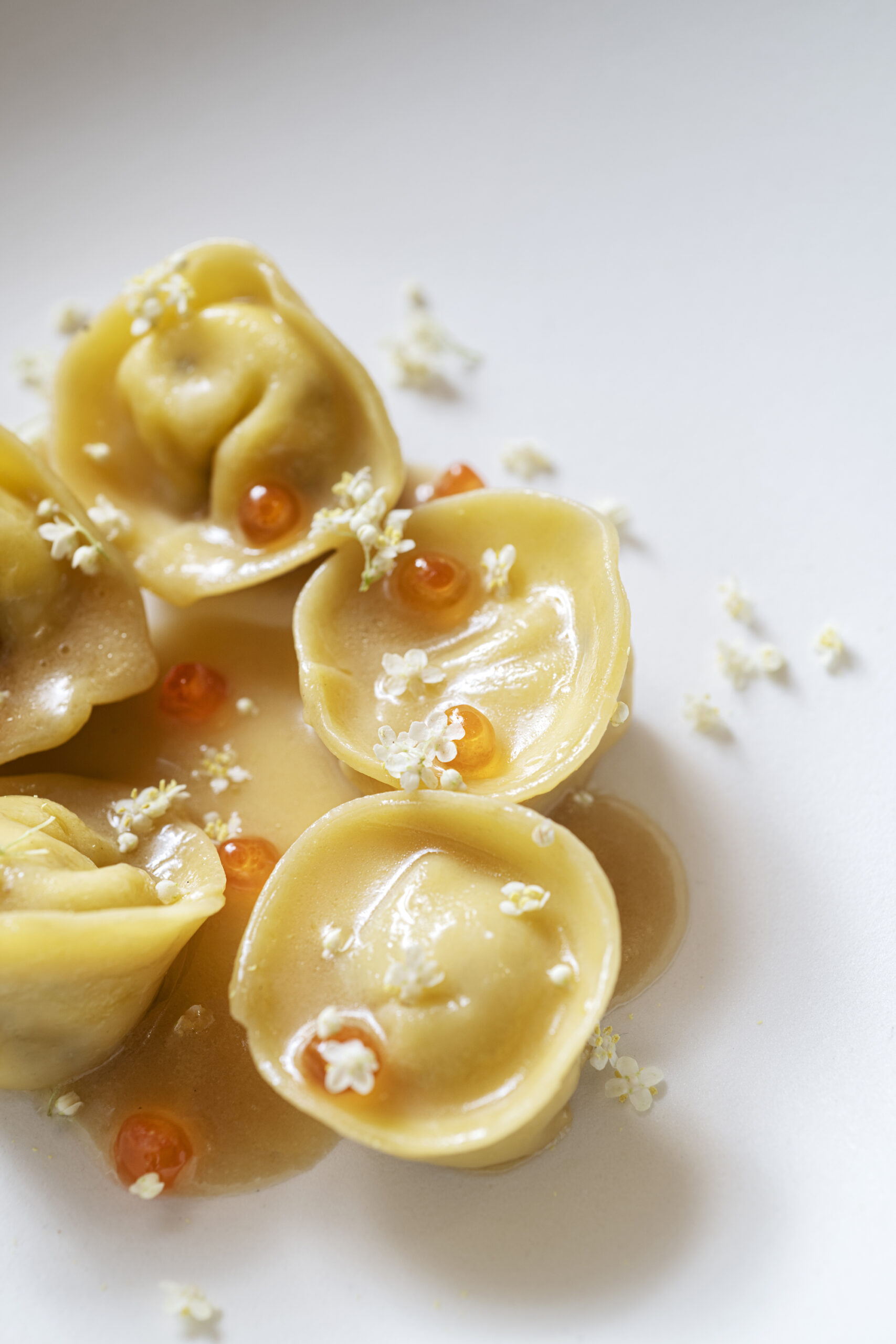Discover Horto - A Dreamlike Milanese Restaurant Guided by an Ethical Vision

Right from the delectable cuisine to the stunning interiors, inviting outdoor landscape and conscious choice of partners - it’s innovatively born from the desire to re-evaluate and give new definition to our relationship with time, the most precious possession.
“The world keeps telling us that we need to change the way we approach everyday life and our relationship with time. Horto's project wants to propose a new model, starting from this awareness, the cuisine and relationship with local territory, a great but often forgotten wealth!” says co-founders Osvaldo Bosetti and Diego Panizza.


With a belief that “everything can be found nearby” Bosetti and Panizza brilliantly formulated the concept of the ethical hour - a one-of-a-kind philosophy that’s rooted in a new synergy between cuisine and territory, building a sustainable ecosystem and higher quality of life.
Harmoniously weaved into every intricate component, Horto’s ethical hour reflects - its choice of strictly seasonal local and raw materials, furnishings and finishes crafted from natural and recycled materials, uniforms made with recycled fabrics defined by creative direction led by milanese agency Motel409 and closing on Sundays in respect of the employees’ personal time.


Each and every partner has been selected according to shared values and beliefs - Alperia, a green energy supplier based in Alto Adige who provides Horto’s staff with a sustainable electrical car, BWT, suppliers of water treatment systems with a careful eye towards sustainable development as well as Broggi, the historical italian excellence in the manufacturing of tableware.
Skillfully featuring an eclectic contemporary style infused with the tradition of the modern Milanese - this alluring space embraces every moment of the day starting from breakfast on the terrace, followed by lunch at the Sole Bistro to the afternoon delicacies, the aperitif on the rooftop of Milan and ends with the Horto Fine Dining experience for dinner.

Located on the terrace of The Medelan, originally designed in the early 1900’s by architect Luigi Broggi, the redevelopment of the entire complex was managed by GLA (Genius Loci Architettura) that conceived it as an organic enveloping environment.
One of the guiding principles for its creation was an idea of refinement that resonates with essence rather than appearance, with a particular attention to the quality of materials and details - architect Luisa Collina and coordinator of the entire project’s environment developed this very theme.
Close to the sky embodying an elevated pleasure, Horto presents an ethereal aura, sinuous patterns fabricated from natural materials and hues effortlessly creating an almost monochromatic fusion of space where one can indulge in moments of conviviality.


In search of "zero waste" materials - its walls are covered with a rice plaster obtained by reusing waste derived from the agricultural and industrial processing of such grain.
The parquet, a typical Milanese finish, additionally comprises pattern breaking from classic designs with each element made of recycled wood deriving from old vinegar factories.
In a discreet and silent fashion, the soothing warm lights integrate themselves within the internal casing and also through some luminous oculi.

As for the furnishings, Horto encompasses elements that combine aesthetic quality and the use of natural materials which incorporates chandeliers by Moooi for the show-cooking restaurant, Flos table lamps, tables by Cassina, chairs and tables by Artisan, chairs and outdoor tables by Ethimo and armchairs by Arper.
Considering the uniqueness of the terrace - GLA and Collina further removed any boundary between the internal and external space through a glass wall that surrounds the location, bringing the city of Milan up to Horto and making it the protagonist of the experience.
Even though it features an open floor plan, it’s been cleverly organized in order to create diverse areas - from accommodating intimate gatherings in the small interior alcoves to larger groups in the open main hall and special celebrations in the outdoor green spaces.

In line with the restaurant's philosophy of transparency, the vast kitchen is visible to all and you’ll be able to see the stages of preparation.
The terrace embodies a landscape project with an horizontal development, conceived by architect Raffaella Colombo - aimed at raising awareness on minute landscapes, biodiversity as well as environmental fragility through an unconventional experience.
This project celebrates, in a contemporary key, the history of the Italian medieval garden, characterized by a strongly geometric and rigorous design contrasted by an inhomogeneous plant world, left free in its vegetative development.

“The colors, the vegetational assemblies, the botanical harmonies and imbalances will change spontaneously and seasonally. On the terrace of Horto you will immerse yourself in what is delicate, so as to reveal the most intimate and secret sensibilities of the recreated landscape and enjoy culinary excellence in a more relaxed way!" Colombo adds.

Giving raw materials a new life and letting one rediscover culinary richness offered by the local surroundings - Horto’s co-founders entrusted the strategic and organizational direction of the kitchen to the three-Michelin Starred and Green Starred for Sustainability chef Norbert Niederkofler.
Seamlessly translating Horto’s philosophy into culinary shape, “my sustainable approach was born with a specific goal - to find a balance with everything that surrounds us. Being able to find its application in the heart of Milan, focusing on local products and a short supply chain, is a source of pride!” explains Niede
rkofler.
In charge of the daily management of the restaurant are the Executive Chef and Head of Menu Development Alberto Toè and the Executive Chef Stefano Ferraro accompanied by the Maître Ilario Perrot.
Creating sophisticated and yet comforting combinations - Ferraro and Toè have conceived dishes that reveal the taste of singular and uncommon ingredients.
Each dish blends tradition with innovation, Italianness with international influences, simplicity with complexity and some of them include the ‘Saffron Plin’, ‘Char Tartare’, ‘Tortelli with Potatoes and Elderflower’ and ‘Shell Waffle’.


To accompany the dishes Horto proposes a selection of fine wines from international labels and small wineries, as well as infusions, decoctions, kombucha and non-alcoholic preparations to respond to multiple tastes.
“With Horto we are bringing an idea of cuisine that is dictated by what nature and the surrounding area offer, while enhancing human involvement. Cuisine is in fact made of people and their stories; it is admirable to see nowadays young people wanting to innovate, starting right from where their grandparents left off. We operate with this concept in mind, while committing everyday to follow a practice of no waste and give raw materials a new life!" Ferraro and Toè conclude.